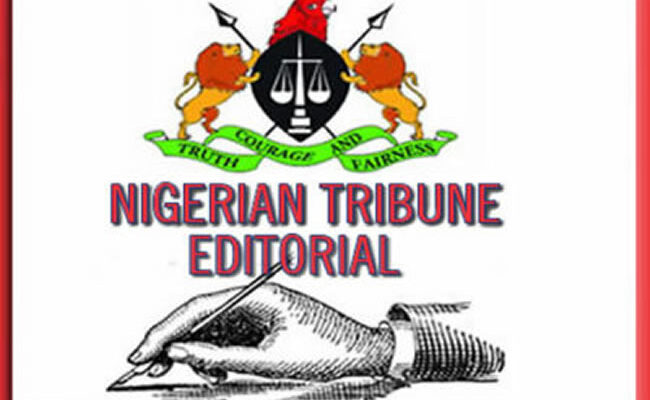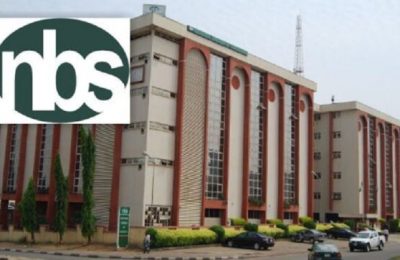IN a statement that rankled the organised labour and sounded strange to right-thinking Nigerians, the Gombe State governor, Inuwa Yahaya, proclaimed last week that his administration could not pay the new national minimum wage of N70,000. Yahaya, who doubles as the chairman of the Northern Governors Forum (NGF), spoke at a meeting with labour leaders, civil society organisations and traders’ associations at the Government House in Gombe shortly before the ongoing nationwide protest kicked off. According to the governor, the state’s limited allocation from the Federation Account made it impossible to implement the new wage package. Yahaya said: “I cannot pay the N70,000 minimum wage, and I suspect many other states are in the same predicament.” He added that even the previous minimum wage of N30,000 was a struggle for many state governments to implement. On July 18, the Federal Government, the organised labour and the private sector had concluded months-long negotiations on the minimum wage. President Bola Tinubu had pruned down labour’s demand for N250,000 per month to N70,000 per month, saying that he would only accede to the original demand if allowed to undertake yet another astronomical increase in the price of fuel. Reacting to Governor Yahaya’s declaration, the Head of Public Relations of the NLC, Benson Upah, advised him to resign. He said: “He should quit if he cannot pay. He took an oath of office to uphold the law and not to break it.”
All too often, because of the perceived docility of Nigerians, the political class takes them for granted. There is no way the new minimum wage, which is barely $43, can take care of the needs of workers and it is more than evident that the labour movement decided to accept the figure proposed by President Tinubu, which a state like Edo under Governor Godwin Obaseki had been paying ever before the Federal Government announced its decision, out of frustration, having been presented with a choice between a rock and a hard place as it were. It is a survival wage, not a living wage by any standard. It is, in all respects, going by the cost of living, a wage that no one can be truly proud of. At the moment, it is not even enough to purchase a bag of rice, yet time was in this current Republic when, with the minimum wage in your pocket, you could actually take a casual stroll into a food store and purchase two bags of rice. Not anymore. It is, therefore, uncharitable of any governor to propose paying anything less than the N70,000 minimum wage. Indeed, following the proposed implementation of a 300 percent increase in the wages of judges, we had proposed an increase of the minimum wage at the same rate to enable Nigerian workers to live decently.
Perhaps because they think that Nigerians aren’t such an intelligent lot, Nigerian politicians have over the years peddled outright falsehoods, presented skewed figures, playing ping pong with the people’s money and living opulent lives while the people literally scrounge and starve. In arguing the inability of his government to pay the new minimum wage, Governor Yahaya conveniently failed to mention the fact that federal allocations to Gombe and all other states had increased dramatically since President Tinubu announced the removal of petrol subsidies. His declaration is therefore highly misleading and contemptuous of workers. Trying to pull the wool over workers eyes is shocking, to say the least. Besides, the new minimum wage is backed by federal law and is binding on all state governments. It must be obeyed to the letter. Indeed, it is hard to detect why the governor chose to make such a reckless statement at a time that Nigerians were protesting bad governance. Precisely what does Governor Yahaya and his dissenting colleagues, if any, want workers to earn? How do they want workers to survive? And why depend only on federal allocations to run their states?

As state chief executives, governors are not supposed to be intellectually lazy; they are supposed to think outside the box. Even if, following the removal of subsidy, there wasn’t such a massive increase in the allocation to states from the Federation Account, it would still have been incumbent on them to roll out mechanisms for taming social discontent by ensuring that workers can survive. Governors are supposed to be problem-solvers, not hangers-on in Government House. To begin with, they are supposed to cut down on their accustomed profligacy and tame the widespread corruption in the system which ensures that a sizable portion of government revenue ends up in private pockets. They are supposed to scrap unproductive agencies, end the culture of using public office for political patronage, and harness the natural resources in their respective states for the overall benefit of the country.
The idea of governors coming out to declare their intention to disobey the new law on minimum wage is a reflection of the extent of collapse of the processes of governance, with people treating valid laws with open contempt without any consequences. Laws are meant to be obeyed by both the government and the governed if they are not intrinsically defective and against natural justice and, as such, unable to be applied, enforced and obeyed. Appropriate punishment must be set out for violations. In any case, for months, the president and the Federal Government were busy telling Nigerians that the reason the process of arriving at a new minimum wage law took so long and was stretched was to give all of those concerned, including state governments, the opportunity to be consulted and to contribute to the proposal. And it is on record that state governments were duly represented on the committee that agreed on the new law, making it utterly irresponsible for any governor to now want to repudiate the law.
Labour unions have a duty to take intransigent state governments to court to compel their observance of the new law at the expense of the court’s confiscation of their allocations. This will ensure that they are not able to continue to attend to the profligate expenses of those in government while denying workers of their lawful entitlements. Nigeria’s profligate politicians only claim there is no money when their personal interests are not at stake.
Read Also: Gov Otu approves employment of 31 doctors, 177 others







